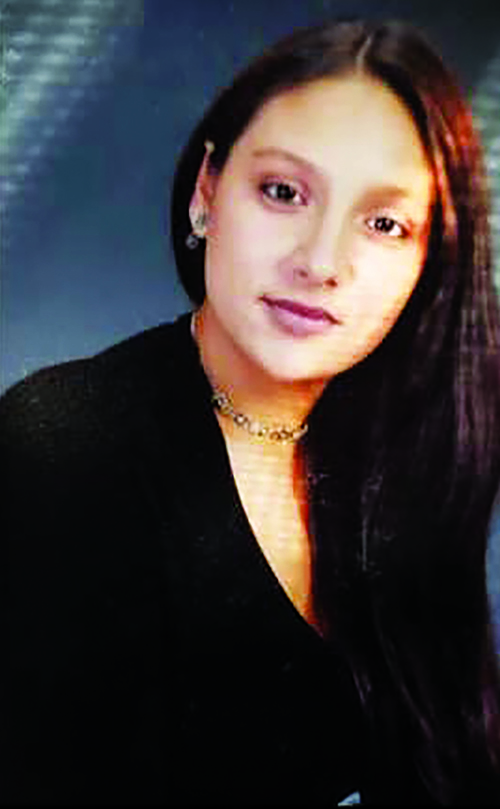“Four years ago, this week was the last normal week of our lives.”
I saw this unattributed quote on Facebook yesterday. Of course, it’s in reference to the start of Covid, when “lockdown” and “quarantine” crept into our everyday vocabulary. But four years ago this week, I was visiting my friend Kristin Burge in the hospital. I sanitized my hands after touching the elevator buttons to get to her floor, kept my distance from people coughing down the halls — confusion added to an already crippling experience. It wasn’t a normal week for me at all. And her memorial service on March 14th was far from normal. Few were masked in the church; some cautious loved ones opted not to hug. Her death marked the beginning of a year of grief for me, one that started with losing my friend, but one in which the whole world grieved the loss of “normal.”
Below is a condensed version of the piece I wrote for her, “Heroin, the Thief,” which was published in the Flyer on March 19, 2020. May all who’ve loved an addict and all who’ve lost a loved one to addiction find peace.

I lost my friend to heroin this week. It was not quick and painless. She did not push the needle in and float off on a peaceful cloud into the ether. The last sound she made was with her body — heavy and limp, falling to the floor with a thud. She had overdosed on a batch cut with fentanyl. First responders arrived 20 minutes after the 911 call was made. She was without oxygen for too long. She went into cardiac arrest and had to be resuscitated four times the first day in the hospital, her chest and ribs broken to bits from the compressions. She spent nearly a week on life support as tests were run. Scans showed severe brain damage. She was completely unresponsive. A week, unable to communicate, twitch a toe, or even flit an eye. I sat at her bedside, talking about everything and nothing, joking and crying, and holding my phone up to her ear, playing some of our favorite songs. Her family gathered, her mother and children, friends, women from church — praying, pleading, mourning a life cut short … hoping for a miracle.
I lost my friend to heroin two years ago. It was not quick and painless. She was running from a contempt of court warrant for a bogus case that just wouldn’t end. She’d go to jail, 30 days, 60 days, be released. Repeat. Fines piled up. She couldn’t pay them. She was buried by an endless cycle, a broken legal system. She was running from a man who wanted to hurt her and wound up in Louisiana. She fell ill there and went to the emergency room. Diagnosis: endocarditis, likely a result of shooting up. Doctors performed emergency open heart surgery to replace a valve — they gave her a pacemaker. She came back home to heal, but didn’t stay long.
I lost my friend to heroin four years ago. It was not quick and painless. I drove her to Heroin Anonymous meetings. Sometimes she’d be high, but I’d pretend not to know; showing up was the first step. Once, after her boyfriend beat her badly, I took her into my home, where she detoxed for a few days — angry as a hornet, her insides churning, wanting more and more and more of the drug. She took a bunch of generic sleep aid and ibuprofen, hoping it’d knock her out; perhaps she wanted to dream through the worst of it. She slept for days, but the urge remained.
I lost my friend to heroin a decade ago. It was not quick and painless. It started when her dad died from cancer. She couldn’t cope, and his pain pills helped. It progressed with an ATV accident. Surgery, metal pins in her leg. Doctor prescribed pain pills. They helped, maybe too much. She took them for too long; now she needed them. When the doctor said no more, she got what she could from a methadone clinic. At some point, it became easier to get drugs on the streets. Heroin felt good — even better than pills.
I lost my friend to heroin. It was a slow death, and it hurt like hell. Her mother lost a daughter. Her sons lost their mother. The drug took her from them long ago. We mourned her in life, for years. The urge writhed through her blood, guiding her every move for more and more and more. Her kids were taken away, she couldn’t hold a job. She ended up on the streets with who knows who doing who knows what, all for more dope.
She was a good person. She was smart but made bad decisions. Her path kinked along the way and rerouted her aims. In moments of clarity, she tried damn hard to kick it. She loved her kids. She wanted to get better and spend time with them. She wanted to help people with her story of recovery. She’d been in rehab (this time) since December. A couple of weeks ago, she snuck out. The urge won.
I lost my friend to heroin this week. It was not quick and painless. We watched her die, slowly, for a decade, but she pushed the needle in for the last time. We watched her body swell and convulse on life support as it shut down day by day. As I write this, doctors are doing the necessary work to find donor recipient matches for her salvageable organs and tissues. By the time you read this, she will be at peace.

